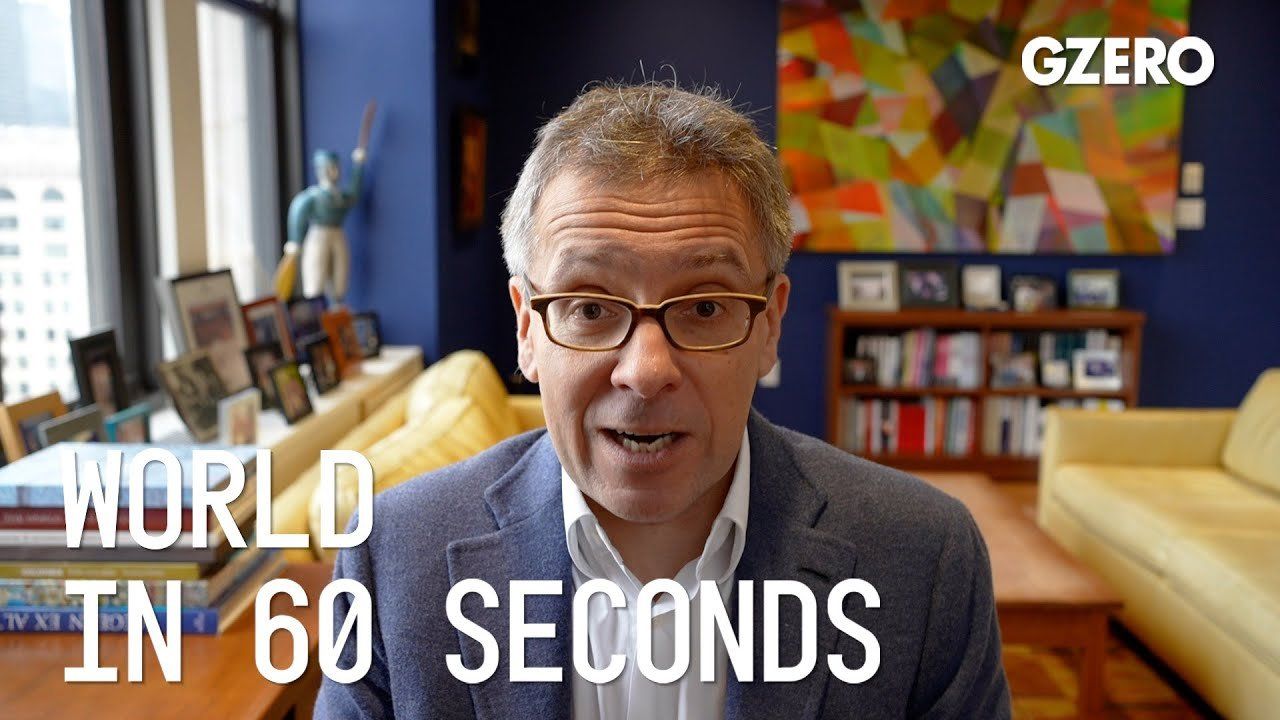Ian Bremmer shares his insights on global politics this week on World In :60.
Why did Netanyahu end up backing down to protests in Israel, but not Macron in France?
Well, they are two different countries. But really, in Israel, they hadn't yet pushed the reform through. At this point, Netanyahu hasn't said he is given up on it. He said he's waiting for 30 days. Now, he might not be able to get it through, but still, it wasn't like it was passed and then he said, "Too much. Now, I've got to undo it." Where in the case of Macron, he had already gotten the vote in the upper house. He'd already forced it through, avoiding the lower house through a constitutional measure, which meant that essentially he had already gotten the agreement and then he was dealing with massive demonstrations. Which, by the way, the demonstrations themselves not super popular in France, even though the pension reform is strongly opposed, so I'm not surprised by that.
Should the West be worried about North Korea developing tactical nuclear weapons?
We got two of these complicated questions. Well, I think that the fact that North Korea continues to expand its nuclear program is a deep concern, because they are an enormously impoverished rogue state, and there's no information on what really goes on inside that country, and there's no real effective diplomatic relations that any countries and certainly their adversaries have with them. So the increasing tests of ballistic missiles that we see going on is a concern, is a worry. In fact, the only thing that calmed them down recently was when Trump met with Kim Jong-Un, and then they did the freeze-for-freeze informally. So you didn't have US military exercises with South Korea, with Japan, and you didn't have tests of ballistic missiles from North Korea. Of course, that's gone and now the tensions are greater. Frankly, there should be more engagement between the two sides.
China is going to break up Alibaba into six parts. What does this tell us about the state of Xi's tech crackdown?
I think more importantly is the fact that Jack Ma is back in China and was clearly told by the Chinese, "Hey, we're not going to arrest you. This would be a really good time to come back." So too, the fact that someone who had been under arrest, involved in the semiconductor program has now been released to start working again. This is the Chinese government saying, "Yes, there's state control, but we want to focus on growth and we want effective response to US and allied export controls on semiconductors, so we have to really empower the private sector with state restrictions, but also with state investment. Whether that's going to be effective or not, very open question, but the Chinese are clearly trying to pile all in on their own national champions in this advanced technology space.
- Netanyahu’s climbdown ›
- Macron’s big gamble ›
- The Graphic Truth: This day dwarfs Black Friday ›
- North Korea on a nuclear rampage, says IAEA chief ›
- The Graphic Truth: North Korea's missile menu ›
- What We're Watching: Russian nukes in Belarus, Israelis vs. Bibi ›
- Israel's judicial reform could destroy democracy from within, says former PM Ehud Barak - GZERO Media ›
- How Bibi could end Israel's democracy (or get ousted) - GZERO Media ›
More For You
100 million: The number of people expected to watch the Super Bowl halftime performance with Bad Bunny, the Puerto Rican superstar and newly minted Album of the Year winner at the Grammys.
Most Popular
Think you know what's going on around the world? Here's your chance to prove it.
An imminent US airstrike on iran is not only possible, it's probable.
Americans are moving less — and renting more. Cooling migration and rising vacancy rates, especially across the Sunbelt, have flattened rent growth and given renters new leverage. For many lower-income households, that relief is beginning to show up in discretionary spending. Explore what's changing in US housing by subscribing to Bank of America Institute.
